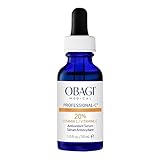In today’s digital age, marketing skincare products online has become both an exciting prospect and a unique challenge. With countless brands vying for attention, standing out in the crowded beauty market requires more than just a great product—it demands smart strategies, authentic engagement, and a deep understanding of your audience. Whether you’re a seasoned skincare entrepreneur or just starting out, this guide will walk you through effective ways to showcase your products, build trust, and grow your online presence. Let’s explore how to connect with customers and make your skincare brand shine in the digital world.
Understanding Your Target Audience and Their Skincare Needs
Last update on 2025-10-11 / Affiliate links / Images from Amazon Product Advertising API
Knowing who will use your products is the cornerstone of effective skincare marketing. Begin by identifying key demographics such as age, gender, skin type, and lifestyle habits. Dive deeper into their personal concerns by asking questions like: What skin issues do they struggle with daily? Are they seeking anti-aging solutions, acne treatment, or hydration? This insight allows you to tailor your messaging and product features to resonate authentically with your audience. Remember, an informed customer feels understood and is more likely to trust your brand.
Once you’ve outlined the profiles of potential buyers, categorize their skincare needs into manageable segments to address them efficiently. Use the following list as a guide for common concerns:
- Dryness & Dehydration: Products that provide moisture and barrier support.
- Acne & Blemishes: Treatments focusing on gentle exfoliation and anti-inflammatory ingredients.
- Sensitivity & Redness: formulas that soothe and calm irritation.
- Aging Skin: Solutions rich in antioxidants and collagen boosters.
| Audience segment | Primary Need | Preferred Ingredient |
|---|---|---|
| Teens & Young Adults | Acne Control | Salicylic Acid |
| Middle-aged Adults | Anti-Aging | Retinol |
| Sensitive Skin | Calming | Aloe Vera |
| Dry Skin | Hydration | Hyaluronic Acid |
Creating Engaging Content That Educates and Inspires Trust
Crafting content that resonates with your audience requires a deep understanding of their skincare concerns and aspirations. By addressing common questions and offering science-backed advice, you position your brand as a reliable source of facts.Use a conversational tone to make complex skincare concepts accessible, and incorporate real-life testimonials or expert opinions to add credibility. Don’t forget to utilize visuals like before-and-after photos, soothing product images, and informative infographics to keep readers engaged and visually inspired.
To foster trust, focus on openness and education through your content strategy. Highlight key product ingredients and explain their benefits in simple terms.Consider using an easy-to-navigate content layout, such as:
- Detailed ingredient breakdowns
- Step-by-step skincare routines
- Myth vs. fact segments
- Interactive Q&A or polls
This approach not only educates your audience but also builds a loyal community around your brand, making customers feel confident in their choices.
Leveraging Social Media Platforms for Maximum Reach and Engagement
To harness the full potential of social media for skincare marketing, itS essential to tailor your content to the unique audience of each platform. Visual-driven platforms like Instagram and TikTok thrive on high-quality images and short, engaging videos, which can beautifully showcase product textures, before-and-after results, and user testimonials. Meanwhile, Facebook and Pinterest serve well for in-depth posts, customer reviews, and educational content about ingredients and skin benefits.Consistent interaction through comments, stories, and live Q&A sessions not only boosts visibility but also builds a loyal community around your brand.
Maximize reach and interaction by integrating these tactics:
- Use platform-specific features like Instagram Reels or Facebook Shops to create a seamless shopping experience.
- Collaborate with skincare influencers tailored to your niche for authentic endorsements.
- Leverage user-generated content by encouraging customers to share their results using a branded hashtag.
- post regularly and at peak times to increase engagement and stay top of mind.
| Platform | Content Type | Best Engagement Method |
|---|---|---|
| Visual stories, reels, tutorials | Influencer partnerships & hashtags | |
| TikTok | Short, fun videos, challenges | Trending sounds & challenges |
| Detailed posts, live streams, reviews | Groups & live Q&A sessions | |
| Product pins, skin routine infographics | SEO-friendly keywords & boards |
Utilizing Influencer Partnerships to Boost Credibility and Sales
Partnering with influencers who genuinely resonate with your skincare brand can significantly enhance both trust and sales. These collaborators act as authentic voices, sharing their personal experiences with your products and offering social proof that builds consumer confidence. When selecting influencers, consider their engagement rates and audience demographics to ensure alignment with your target market. Micro-influencers, in particular, often generate higher engagement and offer a more cost-effective way to reach niche communities passionate about skincare.
Maximize the impact of influencer collaborations by encouraging creative content formats such as tutorials, before-and-after photos, and honest reviews. Leveraging their storytelling can create an emotional connection with potential buyers, transforming interest into purchases. Below is a simple breakdown of different influencer partnership types and their benefits:
| Influencer Type | Typical Reach | Key Benefit |
|---|---|---|
| Micro-Influencers | 1K–50K followers | higher engagement and niche targeting |
| Macro-Influencers | 50K–1M followers | Broader audience, brand awareness |
| Celebrity Influencers | 1M+ followers | Massive reach and instant credibility |
Q&A
Last update on 2025-10-11 / Affiliate links / Images from Amazon Product Advertising API
Q: What are the first steps to start marketing skincare products online?
A: Begin by thoroughly understanding your target audience—their skincare needs, preferences, and purchasing habits. Then,develop a strong brand identity that resonates with them.create an easy-to-navigate website or e-commerce store with high-quality product images and descriptions.
Q: Which online platforms are best for promoting skincare products?
A: Social media platforms like Instagram, Facebook, and TikTok are fantastic for visual content and engaging directly with customers. Additionally, consider marketplaces like Amazon or Etsy if appropriate, and use email marketing to nurture customer relationships.
Q: How vital is content marketing for skincare brands?
A: Extremely important! Educational blog posts,how-to videos,and skincare tips help build trust and authority in your niche. Content marketing also improves SEO,making it easier for potential customers to find your products online.
Q: What role does influencer marketing play in skincare product sales?
A: Influencers can significantly increase brand visibility and credibility by sharing honest reviews and demonstrating product use. Collaborating with skincare influencers whose audiences match your target market can lead to higher engagement and sales.
Q: How can I optimize my skincare product listings to boost sales?
A: Use clear, detailed descriptions that highlight key benefits and ingredients. Include high-quality images and customer reviews. Incorporate keywords that potential buyers use when searching, which improves your SEO and helps your products appear in online searches.Q: Is paid advertising worth investing in for skincare marketing?
A: Yes! Paid ads on platforms like Google Ads, Instagram, and Facebook can target specific demographics, helping you reach the right audience quickly. Start with a small budget to test what works best, then scale up based on performance.
Q: What are some tips for engaging customers and encouraging repeat purchases?
A: Offer loyalty programs, personalized recommendations, and exclusive discounts. Engaging customers through email newsletters and social media content keeps your brand top-of-mind and builds long-term relationships.
Q: how critically important is customer feedback and reviews for online skincare sales?
A: Very important! Positive reviews boost credibility and influence purchasing decisions. Encourage satisfied customers to leave feedback and respond promptly to any concerns to build trust and show you care about their experience.
Q: Can storytelling help in marketing skincare products?
A: Absolutely! Sharing the story behind your brand, such as your commitment to natural ingredients or sustainability, creates an emotional connection with customers and differentiates your products from competitors.
Q: What metrics should I track to measure the success of my online skincare marketing efforts?
A: Monitor website traffic, conversion rates, social media engagement, customer acquisition cost, and return on ad spend.Tracking these metrics helps you understand what’s working and where to improve your marketing strategy.
in Summary
Marketing skincare products online requires a thoughtful blend of understanding your audience, creating engaging content, and leveraging the right digital tools. By focusing on authentic storytelling, showcasing product benefits clearly, and building trust through reviews and social proof, you can effectively connect with customers in the crowded online marketplace. Remember, consistency and genuine engagement are key to long-term success. With these strategies in hand, you’re well on your way to growing your skincare brand and reaching a wider audience. Happy marketing!













